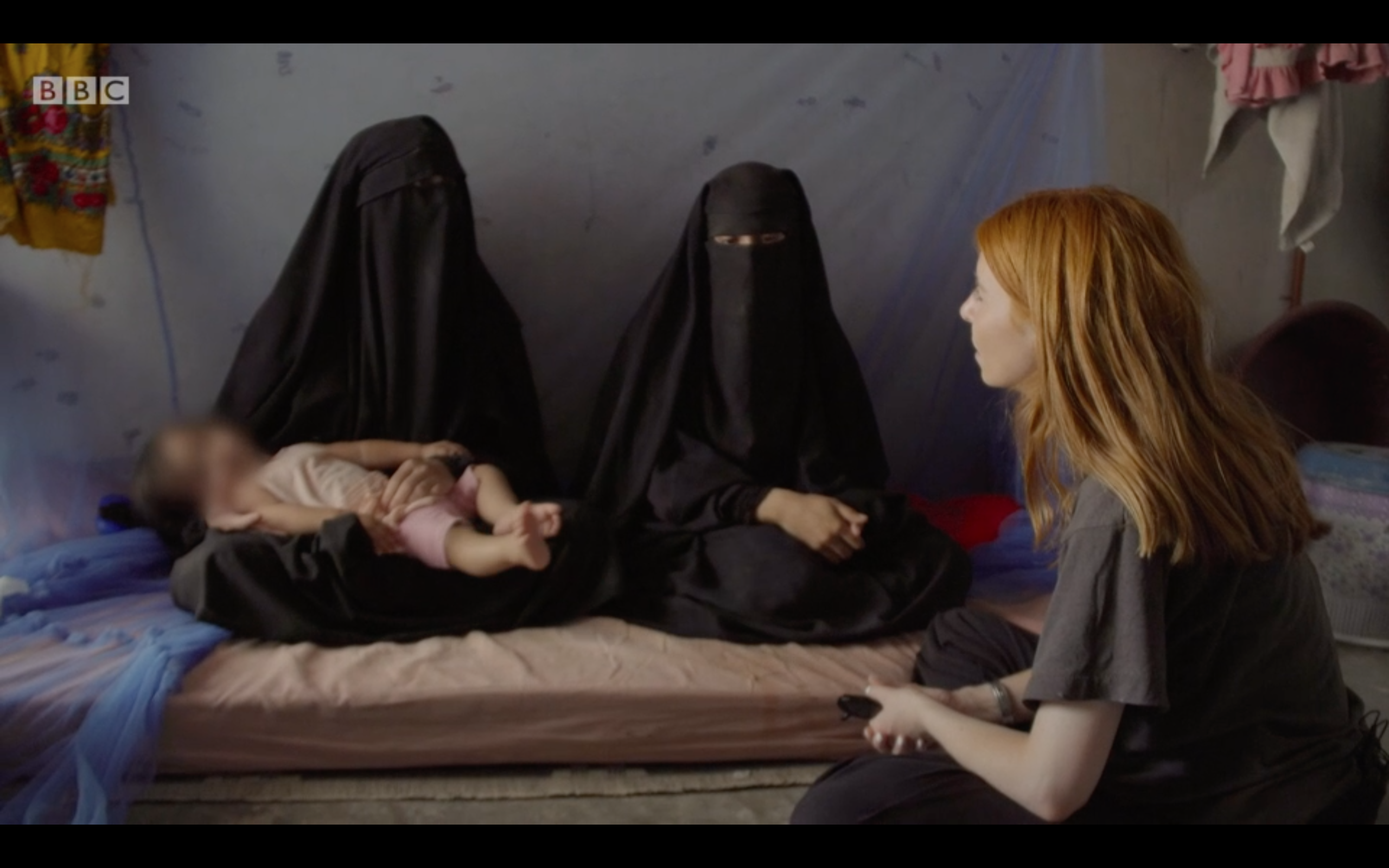
Sand whipping against endless dunes. The mystic howl of a native singing. The caravan of camels. It’s a painfully familiar picture that we’ll be enduring for some time.
I confess that I first intended to review this biopic of Gertrude Bell – who served as an Oriental advisor in British-occupied Iraq after World War One – after its release in 2015 but my disgust at its lazy characterisation, white saviour complex and Orientalism was outweighed by its utter tedium. Perhaps Writer and Director Werner Herzog hoped to bore critics into submission. That such a star-studded cast – Nicole Kidman leads, with support from James Franco, Robert Pattinson and Damien Lewis – managed to dull my outrage is an impressive accomplishment. Because there is no shortage of outrage here.
Queen of the Desert is a lesson in the white exceptionalism that is endemic in fiction. Every Arab that Bell meets is deferential to her, beguiled by her, and intimidated by her. They give her gifts that will bankrupt them because they deem her to be special on sight.
Arabs – or as Bell calls them “the people of the desert,” are reduced to subservience and only feature in this production to signal the virtue of Gertrude Bell.
In a scene straight out of Aladdin, an old wool merchant with a scraggly beard kisses Bell’s hand, promising her a future of greatness, because all people of the desert have the mystical power of prophecy, obviously.
Of course, as a white woman in Arabia, Bell could not possibly take this as a compliment, instead echoing the study-abroad kid’s birth right to teach locals enlightenment. “No, I will forge my own destiny,” she corrects him.
Arab men speak exclusively in the enchanted riddles fitting of their mysticism, such as “The desert knows no hens…the desert knows no minutes,” and, “The wind is shouting of sand and shouting of storm.”
But Arab men are not the only ones reduced to caricatures in this film. Arab women barely appear on screen at all, and when they do they are stripped of humanity. They are either anonymous – faceless women dancing in black for the pleasure of men – or evil, as Bell’s aunt-of-the-Emir captor who tries to force her into his harem. We are told this aunt is powerful, but we are offered no proof. The only Arab woman with dialogue is disappointingly robbed of complexity, motivation and screen time.
Instead, Queen of the Desert prefers to invest its 128m runtime in Orientalism. The cinematography and vocalised soundtrack are an embarrassment to cinema. I stopped counting after the fifth desert transition. Thirty-six million dollars were spent on this film, but nobody bothered check which in direction Persian is written, which is perhaps the most unforgivable, and uncomfortable crime of all. There are many to choose from.
The epilogue title reminds us that, “The Bedouin tribes still remember her as the foreigner who understood them best.” Try not to gag while you wonder on what basis they claim this. Did they do a census of Bedouin tribes? Did they broadcast a SurveyMonkey link across the desert? Or did they, as they did with everything Arab in this film, just make it up and assume nobody would care?
Gertrude Bell was supposed to be fluent in Arabic, Farsi and Hebrew, but Nicole Kidman can barely string three words together in Arabic. Arabic is clearly dubbed over and out-of-sync where she failed to learn her lines. We hold French, Spanish, even High Valerian to a higher standard, but apparently it’s far more important to competently portray invented languages than the language of the people of the desert.
Because let’s face it, nobody in Queen of the Desert was concerned with the portrayal of Arabs. “The Orient is like a prolonged dream,” and its inhabitants exist to promote white superiority. And Bell is only too happy to oblige, quoting the Prophet Muhammad at Muslims, because she even knows their religion better than they do.
That, at least, is an accurate representation of Bell’s historical attitude. Because however hard Queen of the Desert tries to portray her as a feminist trailblazer motivated by her love of ~Arabia~, she was an anti-suffrage servant of imperial tradition, who ignored the requests of locals, deeming herself to be a more qualified judge of what Arabs required.
She orchestrated colonialism and drew senseless borders in the Middle East, and said of the Arab independence movement in 1920, “the tribes must be made to submit to force. In no other way was it possible to make them surrender their arms or teach them that you mustn’t lightly engage in revolution, even when your holy men tell you to do so.”
Yet this movie has Bell singing her hopes for Arab independence. It should come as no surprise with Werner Herzog at the helm. The director promoted Bell’s – and the British imperial – legacy by implying that Arabs are incapable of governing themselves without violence. He said of the British dissection of the Arab World:
“At the same time though, we do see the alternative. We see it practically on the ground. The Islamic State, which denies all borders because they want to establish a caliphate where there are no borders, which includes Lebanon and Israel among others…But when you look from that perspective, you start to partially sympathize with the status of the state it was created in after the collapse of the Ottoman Empire.”
Queen of the Desert is rife with ignorance, racism and laziness. Just because you’ve watched Aladdin and went on holiday to Marrakech, it doesn’t mean you’re qualified to portray an entire region with zero research. Hire a consultant. Whatsapp your Middle Eastern friend. For God’s sake Google which way around Farsi is written. Unforgivable.

4/5
Queen of the Desert receives 4 bloodied swords for its lack of research, for the exotification of Middle Easterner, for its one-dimensional Arab characters, and for its false complexity.



